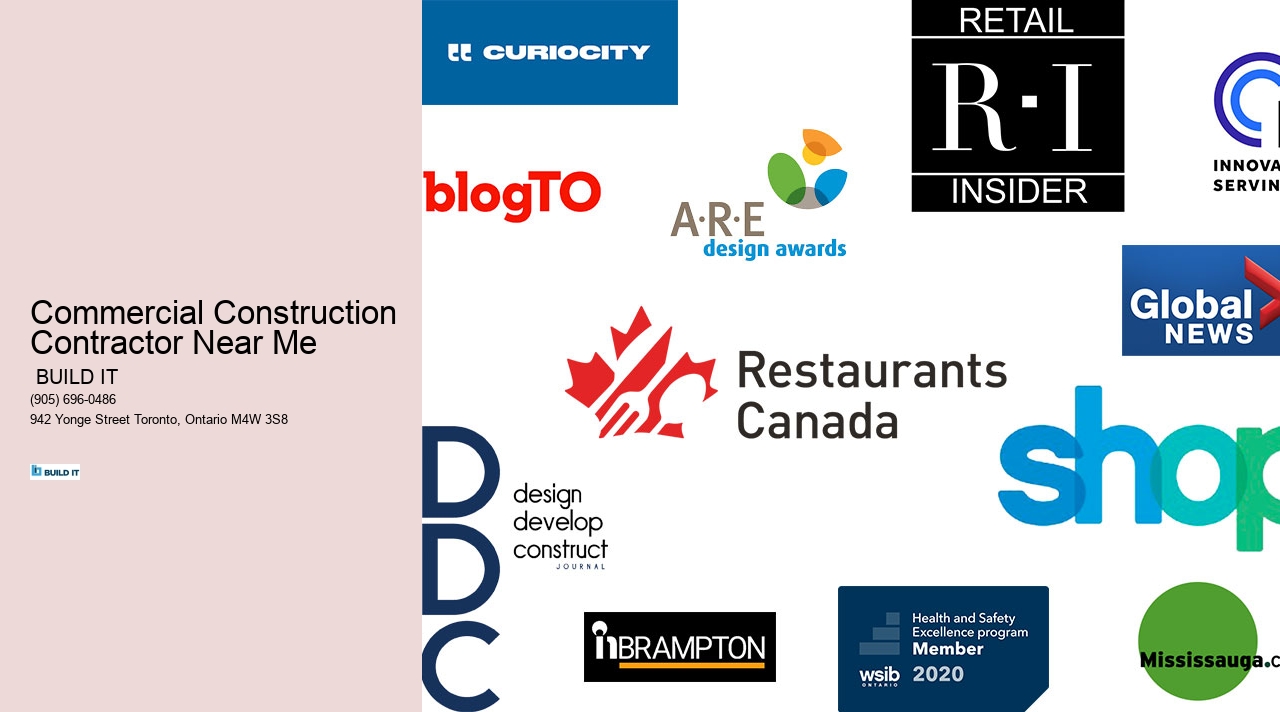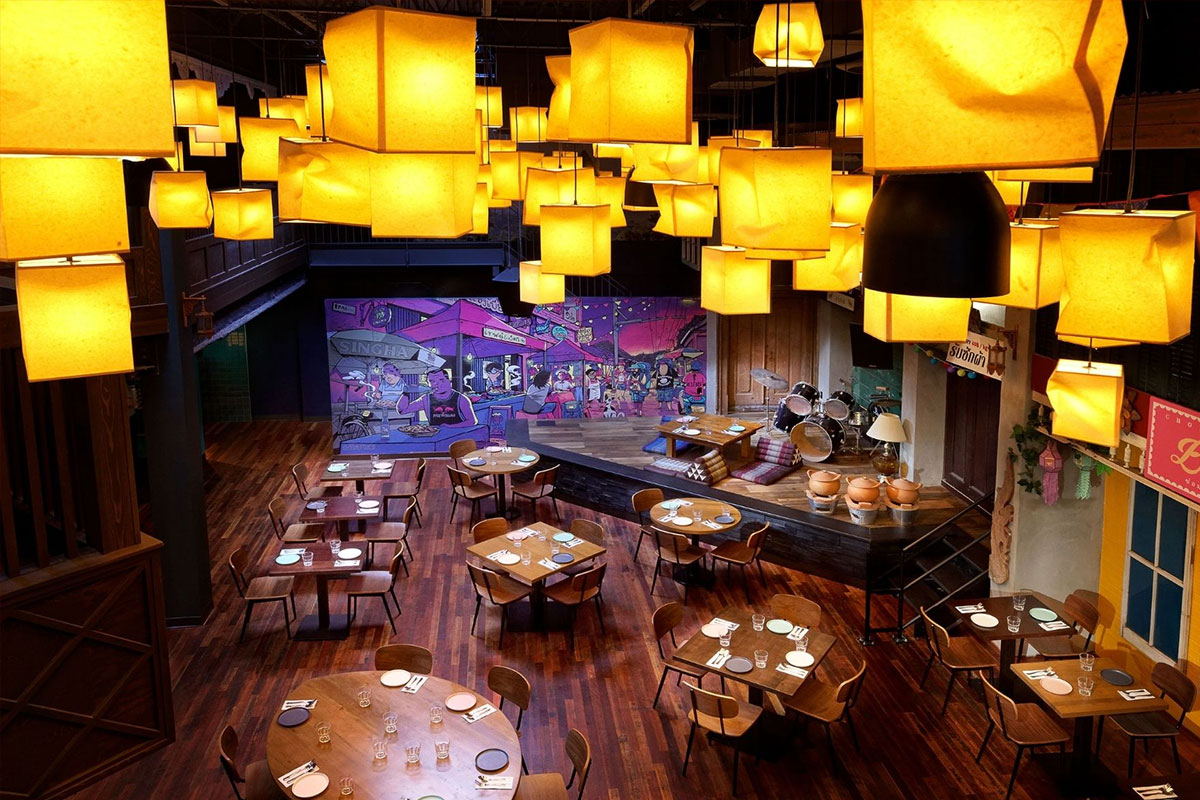

| Commercial Construction Firms & Services | |
|---|---|
| Commercial Construction Firms | Experienced firms delivering superior workmanship and project management. |
| Commercial Construction Contractors Near Me | Find reliable contractors in your area for all commercial building needs. |
| Commercial Building Service | Comprehensive solutions from planning to finishing touches. |
| Commercial Design Build Contractors Near Me | Local experts offering integrated design and build services for efficiency. |
| Commercial Construction Company | Reputable company specializing in all phases of commercial development. |
BUILD IT Toronto is proud to shape the spaces where Toronto works, shops, dines, and grows. As commercial and industrial construction specialists, we partner with Canada’s leading brands and entrepreneurs to deliver tailored builds that meet the highest standards of quality, precision, and innovation. Whether it’s a boutique on Queen West, a clinic in North York, or a warehouse in Scarborough, we bring your ideas to life—efficiently and beautifully.
Unlike traditional contractors, we offer full-spectrum service. From the earliest planning stages and permit coordination to design-build management and project delivery, we handle it all in-house. This integrated approach means fewer delays, better accountability, and a smoother client experience.
We know Toronto. Our seasoned team knows how to navigate the city’s zoning laws, work within tight urban footprints, and meet aggressive timelines. Across the GTA—including Mississauga, Vaughan, Etobicoke, and the downtown core—we’ve successfully completed projects that stand as proof of our dedication to detail and quality.
From restaurants and retail to healthcare and franchises, we build spaces that balance form, function, and compliance. Every project is designed with usability, longevity, and brand identity in mind.
At BUILD IT Toronto, we value our clients as true partners. Through open communication and smart scheduling tools, we provide clarity every step of the way. Because to us, transparency is just as important as craftsmanship.
When your physical space plays a vital role in your business success, choose a team that builds with intention. Let’s create a space that reflects your vision—and supports your future.

The nature of work is evolving, and modern office designs must be adaptable to these changes. Commercial contractors are tasked with creating spaces that can easily be reconfigured for different needs, whether it's for collaborative projects, private meetings, or individual workstations. The use of modular furniture and movable partitions can facilitate this flexibility, allowing companies to adjust their layouts as their teams expand or contract and as the function of spaces shifts over time.
Today's offices require seamless integration of technology. This means planning spaces around connectivity needs such as ample power outlets, high-speed internet infrastructure, and built-in charging stations. Contractors must also consider the placement of screens for presentations and video conferencing capabilities as remote work becomes more prevalent. Cable management solutions should keep spaces tidy while ensuring that tech essentials are readily accessible.
Office designs now prioritize employee health and wellbeing more than ever before. This includes ergonomic furniture to prevent strain or injury, access to natural light to enhance mood and productivity, and improved air quality through ventilation systems or green plants. Additionally, incorporating wellness areas like gyms or relaxation zones can contribute positively to staff morale.
Sustainability is a crucial factor in modern office design. Commercial contractors often opt for eco-friendly materials that reduce environmental impact without compromising on durability or aesthetic appeal. Recycled materials, low-VOC paints, and energy-efficient lighting are just a few examples that support sustainability while also helping businesses lower their operational costs in the long run.
An office space is an extension of a company’s brand identity; therefore, its design should reflect the company's culture and values. Custom artwork, brand colors incorporated into the interior design elements, or uniquely designed spaces that speak to a company’s mission statement can all serve as powerful representations of a brand within an office environment.
Finally, balancing open areas designed for collaboration with private spaces where employees can focus without distractions is key to a productive workplace. Open-plan offices may foster teamwork but providing quiet rooms or soundproofed zones ensures there's space for deep concentration when required. Contractors need to strike this balance by designing areas that cater both to group dynamics as well as individual work preferences.
Communication serves as the bedrock upon which successful commercial projects are built. At its core, it facilitates the exchange of ideas, expectations, and concerns between all parties involved in a contract. Proper communication ensures that project objectives are clearly understood and aligned among stakeholders, including clients, contractors, subcontractors, suppliers, and team members. It is through this flow of information that misunderstandings are mitigated and a shared vision is fostered.
In the context of contracts and agreements, communication plays a pivotal role in ensuring that what is delivered matches what was promised. Regular discussions about the progress of work help keep everyone on the same page and allow for adjustments to be made when necessary. This helps prevent scope creep – where the boundaries of what is being delivered expand beyond what was originally agreed upon – which can lead to disputes and dissatisfied clients.
Commercial projects often involve complex operations that require coordinated efforts across various disciplines. Effective communication channels enable teams to navigate these complexities by sharing expertise and making collective decisions based on comprehensive insights. When all contributors can communicate seamlessly, risks are identified more promptly, solutions are developed collaboratively, and projects stay on track.
No project is immune to challenges or unforeseen events; however, how these situations are communicated can mean the difference between rapid resolution or escalating problems. In times of crisis or conflict within a project’s lifecycle, clear and honest communication becomes even more critical. It enables quick dissemination of information regarding issues at hand while fostering an environment where proactive measures are encouraged over reactive ones.
Ultimately, successful communication in commercial projects goes beyond mere transactions; it builds lasting relationships based on trust and understanding between contracting parties. These bonds contribute significantly to repeat business and referrals which are essential for long-term success in any commercial endeavor. By prioritizing effective communication throughout every phase of a project's execution from contract negotiation to final delivery - businesses stand to create not only profitable outcomes but also strong networks within their industries.

Commercial focuses on offices/retail, while industrial includes warehouses, factories, with different codes and needs.
Institutional firms handle schools, hospitals, and government buildings; commercial firms focus on business structures.
Commercial GCs handle larger, code-intensive projects like offices or retail spaces, while residential focus on homes.